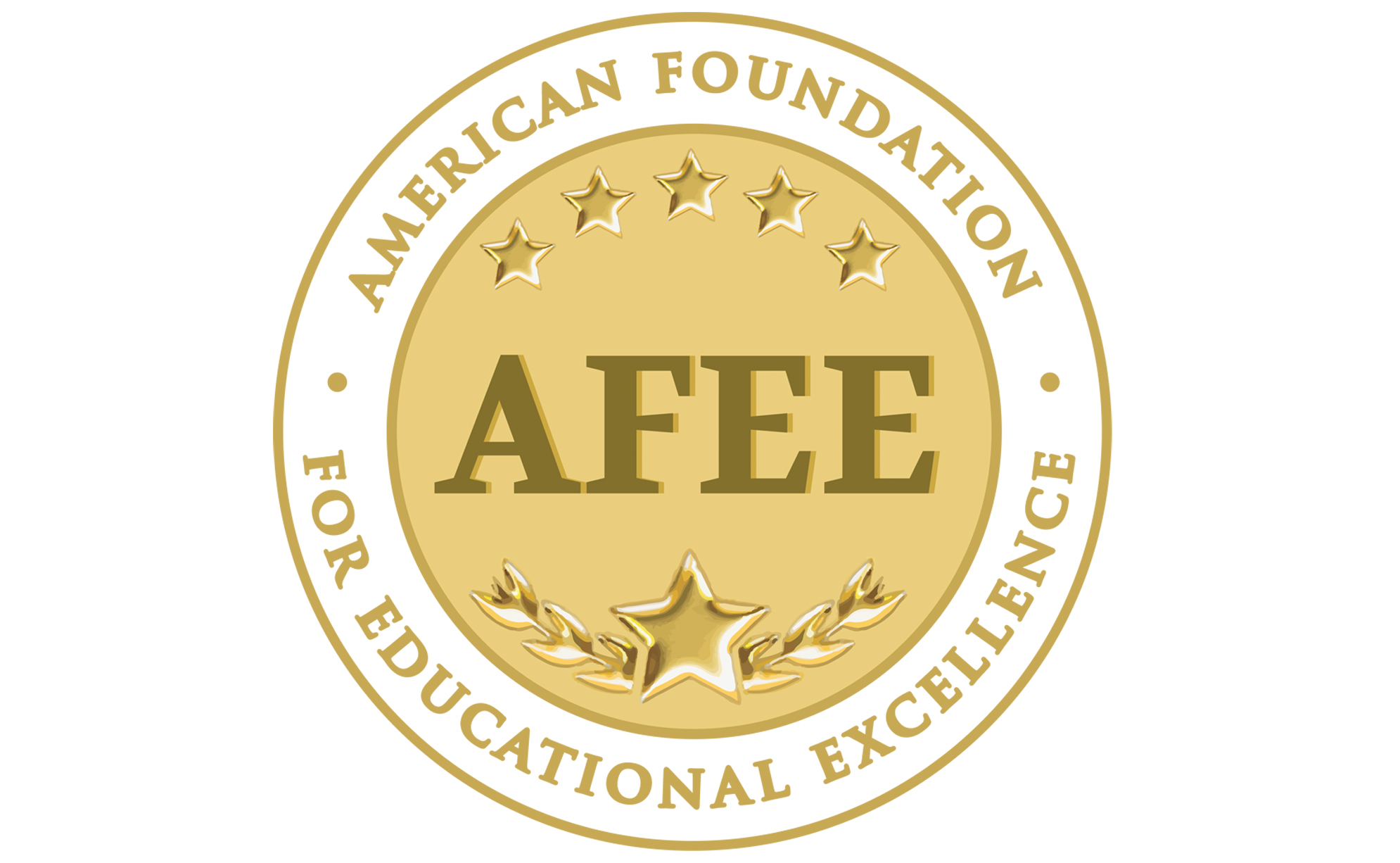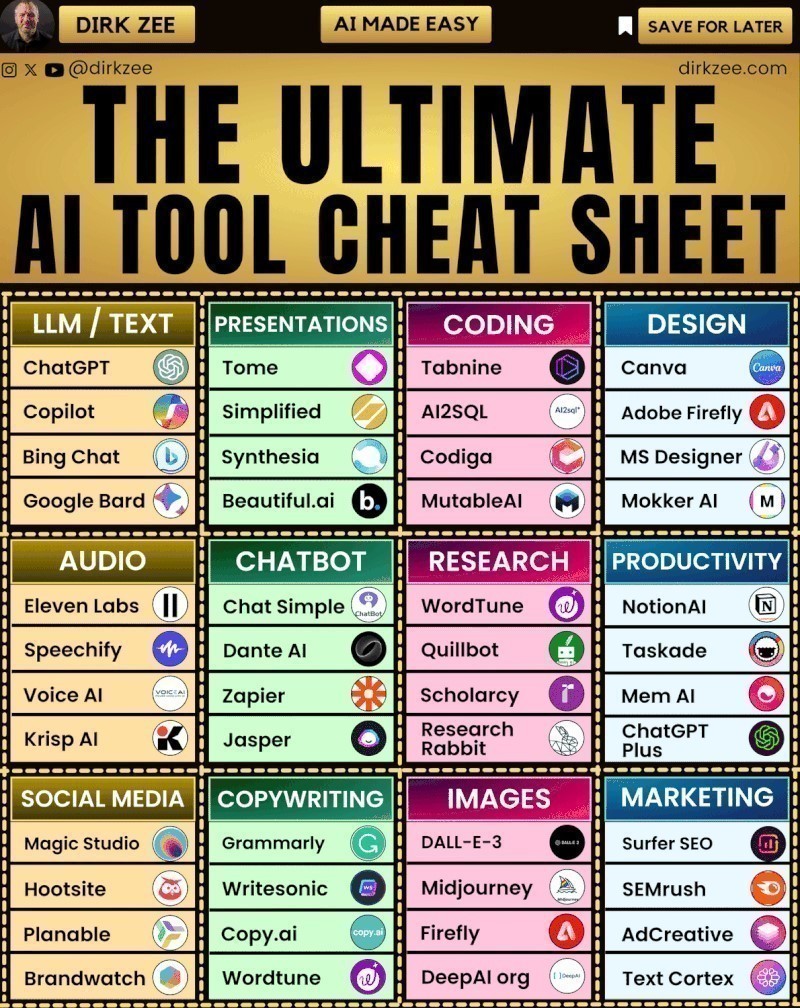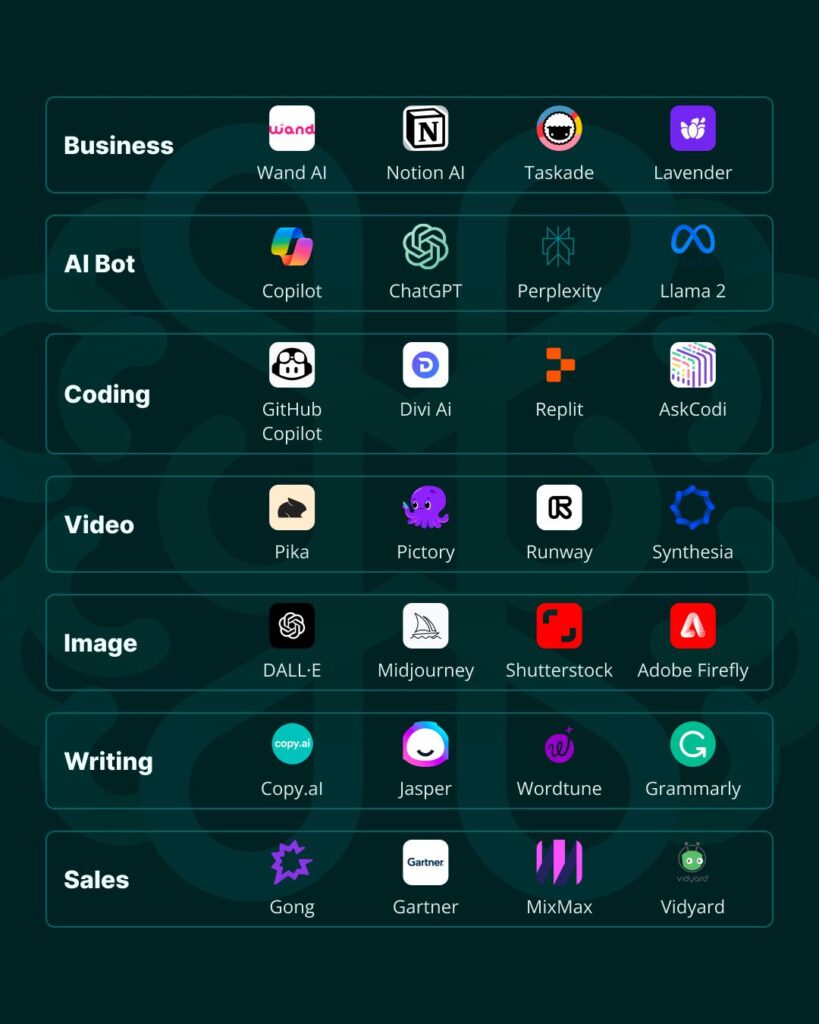Executive Program on Instructional Course Design & Educational Technology
This program is aimed at executives and educators who wish to hone their skills in course design and technological applications.

How to Lead Successfully in Course Design & Educational Technology
Dates: Custom Tailored, Based on Your Needs
Time: Mondays from 6-8 PM EST
Location: GWU, Duques Hall
Objective: Help Empower Business Leaders and Educators to Lead Successfully in Course Design & Technological Applications.



Tentative Program
AI: Chat GPT
1- How to Use CHAT GPT: For Educators
2- Chat GPT Policies
3- Ethical Use of AI/Chat GPT
4- ChatGPT Ethical Use Pledge
5- Tools for Detecting AI Generated Written Content Like ChatGPT
6- AI Tool Cheat Sheets
7- Relevant Links
8- From the AI Conferences
1- How to Use CHAT GPT: For Educators
Educators can use ChatGPT to enhance classroom activities and provide additional learning resources. Here are some instructions on how educators can use ChatGPT in an educational setting:
- Explore Use Cases:
- Consider how ChatGPT can complement your teaching methods. It can be used for generating additional learning materials, answering student queries, or simulating conversations to practice language skills.
- Access OpenAI's Website:
- Visit the OpenAI website (https://chat.openai.com) to access the ChatGPT interface.
- Experiment with Prompts:
- Type in prompts related to your subject or lesson plans. For example, you can ask for explanations of concepts, generate creative writing prompts, or even request programming code snippets.
- Review and Refine Responses:
- Evaluate the responses generated by ChatGPT. Keep in mind that the model might not always provide accurate or contextually appropriate information, so review and refine the responses as needed.
- Create Learning Resources:
- Use ChatGPT to create supplementary learning resources, such as additional explanations, practice questions, or prompts for students to explore.
- Enhance Lesson Plans:
- Integrate ChatGPT outputs into your lesson plans to provide diverse perspectives, additional examples, or creative writing inspiration.
- Encourage Critical Thinking:
- Discuss with students the limitations of AI models like ChatGPT. Encourage them to critically evaluate the information provided and use it as a supplement rather than a sole source.
- Privacy and Responsible Use:
- Emphasize responsible and ethical use of ChatGPT. Remind students not to share personal information and to use AI tools in a respectful and inclusive manner.
- Discuss AI Ethics:
- Use interactions with ChatGPT as an opportunity to discuss ethical considerations in AI. Talk about biases, transparency, and the impact of AI on society.
- Collect Student Feedback:
- Encourage students to provide feedback on their experiences using ChatGPT. This feedback can be valuable in understanding how students perceive and interact with AI.
- Stay Updated:
-
- Keep abreast of any updates or guidelines provided by OpenAI regarding the use of ChatGPT. This ensures you are using the tool effectively and responsibly.
Remember that while ChatGPT can be a valuable tool, it's essential to use it judiciously and in conjunction with other teaching methods. It's not a replacement for critical thinking or the expertise of educators.
Source: Different Versions of Chat GPT Input Prompted & Synthesized by Nada Salem.
2- Chat GPT Policies:
Crafting policies for college students using ChatGPT involves considerations for responsible and ethical use. Here are some guidelines you may want to include:
- Respectful and Inclusive Communication:
- Emphasize the importance of respectful and inclusive language.
- Discourage any form of hate speech, harassment, or discrimination.
- Academic Integrity:
- Clearly state that students should not use ChatGPT to engage in academic dishonesty, including plagiarism.
- Remind them of the consequences of violating academic integrity policies.
- Privacy and Confidentiality:
- Stress the importance of not sharing personal or sensitive information while using ChatGPT.
- Highlight that conversations may be logged for monitoring and compliance purposes.
- Appropriate Content:
- Specify guidelines on discussing appropriate topics and avoiding discussions or requests that are inappropriate or violate college policies.
- Security Awareness:
- Remind students to be cautious about the information they share and to be aware of potential security risks.
- Encourage the use of strong, unique passwords and regular password updates.
- Ethical Use of AI:
- Educate students on the ethical considerations surrounding AI use.
- Encourage critical thinking about the implications of AI in various contexts.
- Understanding Limitations:
- Make students aware of the limitations of ChatGPT, including its inability to provide medical, legal, or specific professional advice.
- Encourage seeking advice from qualified professionals when needed.
- Monitoring and Compliance:
- Clearly state that conversations may be monitored to ensure compliance with college policies.
- Outline the consequences of violating these policies.
- Reporting Misuse:
- Provide a clear process for reporting any misuse or inappropriate behavior related to ChatGPT.
- Ensure students feel comfortable reporting incidents without fear of retaliation.
- Regular Review and Updates:
- State that these policies are subject to review and may be updated periodically.
- Encourage students to stay informed about any changes in the policies.
- Educational Use:
-
- Encourage students to use ChatGPT as a tool for learning and problem-solving rather than as a means to circumvent learning processes.
These policies should be communicated clearly to all students, and it might be helpful to have them acknowledge their understanding and agreement with the policies. Additionally, incorporating a brief educational component on AI ethics and responsible use may further enhance students' awareness and understanding.
Source: Different Versions of Chat GPT Input Prompted & Synthesized by Nada Salem.
3- Ethical Use of AI/Chat GPT:
Understanding the ethical implications of using AI is crucial for responsible and conscientious engagement. College students should be encouraged to consider the following aspects:
- Fairness and Bias:
- Remind students that AI models, including ChatGPT, are trained on data, and biases present in the training data may be reflected in their responses.
- Encourage awareness of bias and the importance of treating all individuals fairly and without prejudice.
- Transparency:
- Highlight the need for transparency in understanding that AI models, including ChatGPT, operate based on complex algorithms.
- Emphasize that while AI can provide useful information, it's essential to be aware of the limitations and uncertainties associated with its responses.
- Accountability:
- Stress the importance of taking responsibility for one's interactions with AI.
- Discuss the consequences of using AI irresponsibly or in ways that may harm others.
- Privacy Considerations:
- Emphasize the significance of respecting privacy when engaging with AI.
- Remind students not to share personal information and to be cautious about the information they disclose during interactions.
- Social and Cultural Sensitivity:
- Encourage students to be culturally sensitive in their interactions with AI and to avoid engaging in discussions or requests that may be offensive or inappropriate.
- Impact on Employment:
- Discuss the potential impact of AI on employment and the ethical considerations related to the use of automation.
- Encourage students to think critically about the broader societal implications of AI technology.
- Human Oversight:
- Emphasize the importance of human oversight when using AI.
- Remind students that AI is a tool and should not replace critical thinking or human judgment in decision-making processes.
- Environmental Impact:
- Briefly discuss the environmental impact of AI technology.
- Encourage responsible use by minimizing unnecessary interactions and considering the environmental implications of AI infrastructure.
- Continuous Learning:
-
- Remind students that the field of AI is constantly evolving.
- Encourage a mindset of continuous learning to stay informed about the latest developments, ethical considerations, and responsible practices in AI.
By incorporating these considerations into the ethical use of AI, students can develop a more comprehensive understanding of the responsibilities associated with interacting with AI technologies and contribute to the development of a thoughtful and ethical AI culture within the academic community.
Source: Different Versions of Chat GPT Input Prompted & Synthesized by Nada Salem.
4- ChatGPT Ethical Use Pledge:
As a student at [Your College/University], I pledge to use ChatGPT responsibly and ethically. I understand the impact of my interactions with artificial intelligence on both the digital and human communities. By signing this pledge, I commit to the following principles:
- Respectful Communication:
- I will use ChatGPT to engage in conversations that are respectful, inclusive, and free from hate speech, discrimination, or harassment.
- Academic Integrity:
- I will uphold academic integrity and will not use ChatGPT to engage in plagiarism or any form of academic dishonesty.
- Privacy and Confidentiality:
- I will not share personal or sensitive information during interactions with ChatGPT, and I understand the importance of maintaining privacy.
- Appropriate Content:
- I will ensure that my interactions with ChatGPT involve discussions on appropriate topics and refrain from engaging in any form of inappropriate or offensive content.
- Security Awareness:
- I will be cautious about the information I share and will follow best practices for online security, including the use of strong and unique passwords.
- Ethical Considerations:
- I will consider the ethical implications of using artificial intelligence, including biases in responses, and strive to use ChatGPT in a manner that aligns with ethical standards.
- Understanding Limitations:
- I recognize the limitations of ChatGPT and understand that it should not be used as a substitute for professional advice in fields such as medicine, law, or specific expertise.
- Reporting Misuse:
- I will promptly report any misuse or inappropriate behavior related to ChatGPT, contributing to the maintenance of a positive and responsible community.
- Continuous Learning:
- I will stay informed about developments in artificial intelligence ethics and responsible use, fostering a mindset of continuous learning and improvement.
- Community Awareness:
-
- I will educate my peers about responsible and ethical use of ChatGPT, promoting a culture of awareness and understanding within the college community.
By signing this pledge, I commit to using ChatGPT as a tool for learning and enrichment while respecting the ethical considerations that come with its use. I understand that my responsible use contributes to a positive and inclusive digital environment.
This pledge can be adapted to suit the specific policies and culture of your college or university. Additionally, consider providing an opportunity for students to discuss and ask questions about the pledge during orientation or awareness sessions.
Source: Different Versions of Chat GPT Input Prompted & Synthesized by Nada Salem.
5- Tools for Detecting AI Generated Written Content Like ChatGPT
6- AI Tool Cheat Sheets
7- Relevant Links:
The A.I. Dilemma - Tristan Harris & Aza Raskin - Center for Humane Technology - March 9, 2023
Other AI Text Generators:
Google Bard and Jasper
8- From the AI Conferences:
Tools:
- Hellohistory.ai (Excellent)
- Deep ai: AI characters (Choose a character to chat with)
- Diffit.ai
- Bearly.ai
- Gamma.app
- Speechify: app.speechify.com
- Perplexity: text generator
- Gemini
- Synthesia **
- Aragon.ai ** ai headshots
- Adobe firefly > best image generation
- Duolingo to learn a language
- Khanmigo.ai
- Phenaki > video generation
- Scholar ai
- Piktochart
- Ai playground (Vyond and Colossyan)
- Perplexity gives real resources
- Microsoft Copilot
- Teacher tools: goblin tools
- Formative AI > Assessment
- Presentation tools/create slide decks: Pictory & slidesai.io,
- Curipod Lesson Generator
- Speechify.com
- Voice over program: Murf.ai
- Naturalreaders.ai (skips tables)
- Writing tool: quillbot.com- paraphrase
- app.grammarly.com (upgraded version for sentence structure)
- Design tools: youtube summary (free chrome add on)
- Remove background: Adobe & Remove.bg
- Music production tools: tracktion & Suno.ai
Tips:
- Ask chat GPT to assist as mentor, assistant… to assume the role of…
- Make sure you edit
- Harness AI as a tool to use appropriately
- Don’t upload student work- it is their property
- If we do not teach AI in schools/universities, we cannot regulate it
- “I have to be able to stand behind (own up to) every word I use and that was created by chat GPT” - Punya Mishra
Links:
Main Textbook:
- "The Systematic Design of Instruction" by Dick, Carey & Carey (Digital)
Additional Textbooks:
- "Understanding by Design" by Wiggins & McTighe
- "50 Strategies to Boost Cognitive Engagement" by Rebecca Stobaugh
- "Teaching Students to Drive Their Brains" by Wilson & Conyers
TERMS OF SERVICE: We reserve the right, in our sole discretion, to reject or remove anyone who has registered or gained access under false pretenses, provided false information, or for any other action or behavior that we deem inappropriate, before, during or after the sessions, with or without prior notice or explanation, and without liability.
IMPORTANT DISCLAIMER: All rights reserved. The information on this page shall be considered proprietary information not to be used, copied or reproduced in any way. No part of our presentations / workshops / webinars may be reproduced, distributed, or transmitted in any form or by any means, including photocopying, recording, or other electronic or mechanical methods.
















































